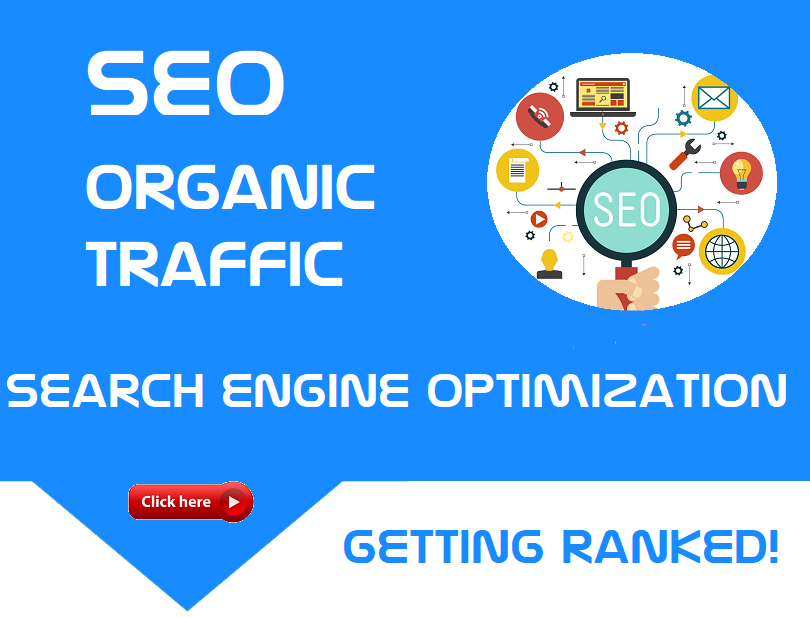

Organic SEO is an online marketing strategy made up of smaller sub-strategies, like keyword research and link building, that help your website rank at the top of organic, unpaid search engine results pages.
Organic SEO matters because a staggering 75 percent of searchers donít even click past the first page of results. If youíre not ranking highly, you guessed it ó your website wonít get any traffic, which means your site will struggle to bring sales and leads to your business.
Companies also need to pay attention to organic search engine optimization because users rely on search engines to find what they need. Over 90% of online experiences begin with a search engine, like Google.
If you don't appear at the top of organic search results, youíre giving away revenue.
In fact, organic traffic captures more than 40% of revenue. Not to mention, search engines deliver a close rate thatís eight times higher than traditional marketing. Search is a valuable marketing channel thatís waiting to drive revenue for your business.
You just have to start optimizing your site for organic SEO.
If Googleís main goal is to provide the best possible results for users, the goal of organic SEO is to create a website and content that is worthy of Googleís top ranking.
If you want your website to rank highly in SERPs, itís crucial that you implement organic SEO.
An organic SEO strategy consists of techniques that work together to improve your website.
Some organic SEO strategies include:
Keyword research: Researching the keywords you should target so your website appears at the top of SERPs when people search keywords and phrases related to your business.
Content creation: Creating various types of content to target valuable keywords for your organic SEO campaign.
Creating an internal linking profile: Ensuring that your site pages include links to other pages on your site so search bots can appropriately crawl and index your site.
Adding multimedia to content: Adding visual elements like images, infographics, and videos to your site pages to engage visitors and encourage them to spend more time on your site.
Ensuring your site is easy to use and aesthetically pleasing: Simplifying your siteís navigation so visitors can find information quickly and efficiently, ensuring your buttons and forms load properly, and updating your siteís design.
Optimizing page load time: Making sure your site pages donít take longer than two or three seconds to load to prevent people from leaving or bouncing from your site.
Adding image alt tags: Adding descriptive text to your images in code to ensure that Google can understand what the images are and how they relate to the content.
These techniques work together to appeal to Googleís ranking algorithm, which can help you rank higher in SERPs.
Want to start reaping the benefits of a custom, organic SEO strategy?
If youíre feeling overwhelmed after reading our five-step strategy process, you might be nervous to take on the challenge. Donít worry.
Although you can do organic SEO on your own, itís a huge undertaking, and we typically recommend hiring an organic SEO company like Brevard Internet
When people go online to find a new product, company, or service, they start with a search. Research shows that around 93 percent of online experiences begin with a search engine like Google, Yahoo!, or Bing. Itís rare for users to know what they want. They may have an idea, but they need a search engine to guide them.
If your company doesnít appear in search results, how will users find you? In most cases, they wonít.
Users will, however, find your competitors and do business with them. Even if you offer a better product and service, it wonít matter because, from a userís perspective, you donít exist. If you want to become an option for consumers, then you need to make SEO a priority.
If you rely on Google for search, youíre not alone. The search engine dominates the industry, owning more than 70 percent of the search engine market. Thatís why many companies tailor their SEO strategies to Google versus Yahoo! or Bing.
In comparison to Google, Bing claims 4.5 percent of the market and Yahoo! 2.5 percent.
More than one billion people use Google every month.
Chrome, Googleís designated web browser, maintains more than one billion monthly users on desktop and more than 400 million monthly users on mobile. This fact demonstrates the continued role of Google in search.
Itís a search engine that consumers and businesses use when looking for a new product, service, or brand, which is why many companies prioritize Google in their SEO strategy. It offers access to a larger audience, which can lead to more traffic, conversions, and sales.